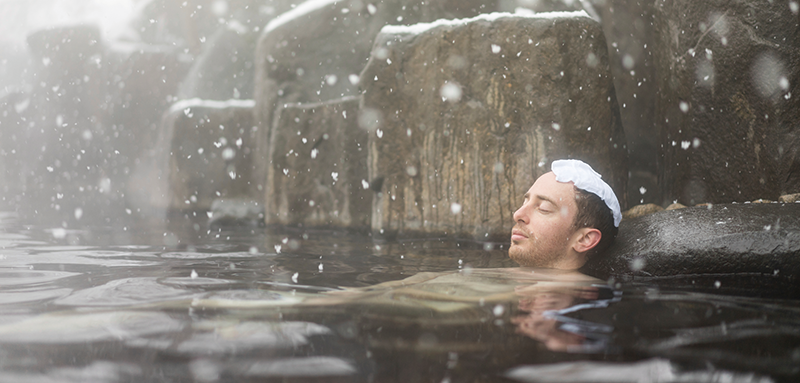By Matt Klampert
Of course, visiting the Snow Country is a fantastic, once in a lifetime experience, but what if it wasn’t just once in a lifetime? Let’s learn about living in YUKIGUNI from a few of our experts; though they were not born in YUKIGUNI – or even in Japan – their journeys have taken them here!
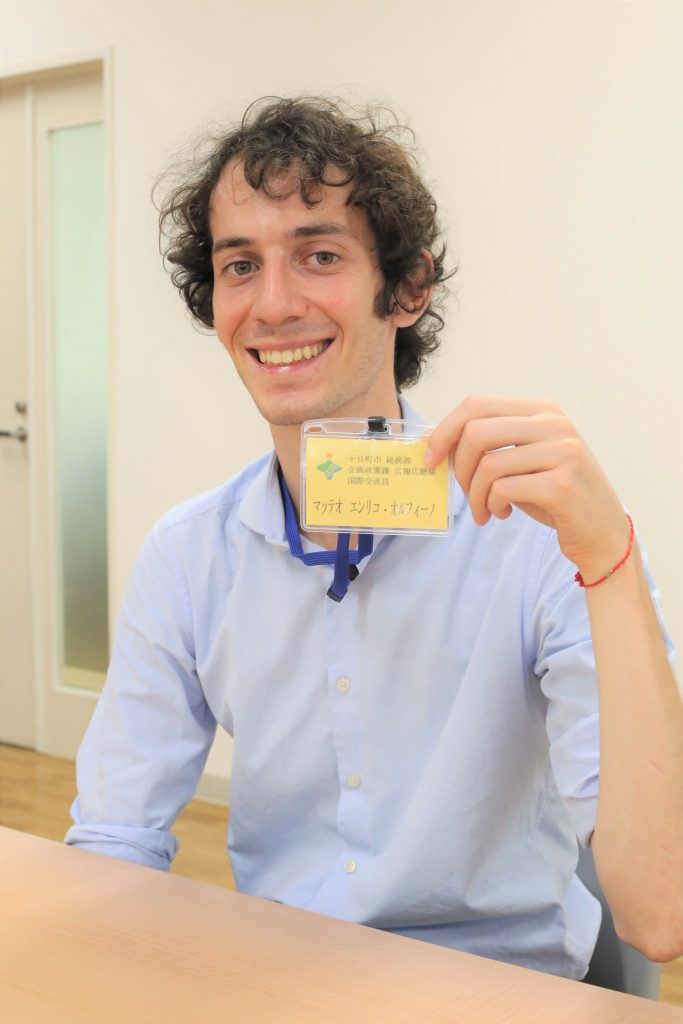
Tokamachi City Councilor of International Relations Matteo Enrico Orfino (Italy)
Tell us a little about how you came to live and work in YUKIGUNI.
I arrived in Tokamachi in August of 2023. I used to like anime as a high school student, and I first heard the Japanese language through watching anime, so I decided to start studying Japanese. After that, I enrolled in university, and first came to Japan as an exchange student. This is my third time in Japan, but my first time living in the countryside.
What were your first impressions of Tokamachi?
I noticed that there is less public transportation compared to a bigger city, so you need to be able to get around by car. Tokamachi is structured very differently compared to other Japanese cities I’ve seen; I was surprised how well the water is managed: when you walk around the city you can see small canals around every street, and the melted water is used for rice production.
My hometown (a town south of Rome) is not a major city, and there is not much tourism or culture, and little natural scenery. Here there is so much culture and so many traditions even in such a small town, and I’ve heard some of these traditions are hundreds of years old! I was pleased to know of such culture and how the locals are trying to preserve it.
How is your daily life in Tokamachi?
My life here is unique; it’s a completely different environment than what I was used to. I was living in a bubble in university because I was always around people my own age, and we were just studying and having fun; I didn’t experience “deep” Japanese culture. When I interned it was in a city, and quite an international environment. Now, most of the time I am the only foreign person at my job. I think it’s better here than any other place in Japan; I enjoy being around nature, and people here are warm and friendly. Tokamachi is a good environment with little stress, so I think it is easy to live here.
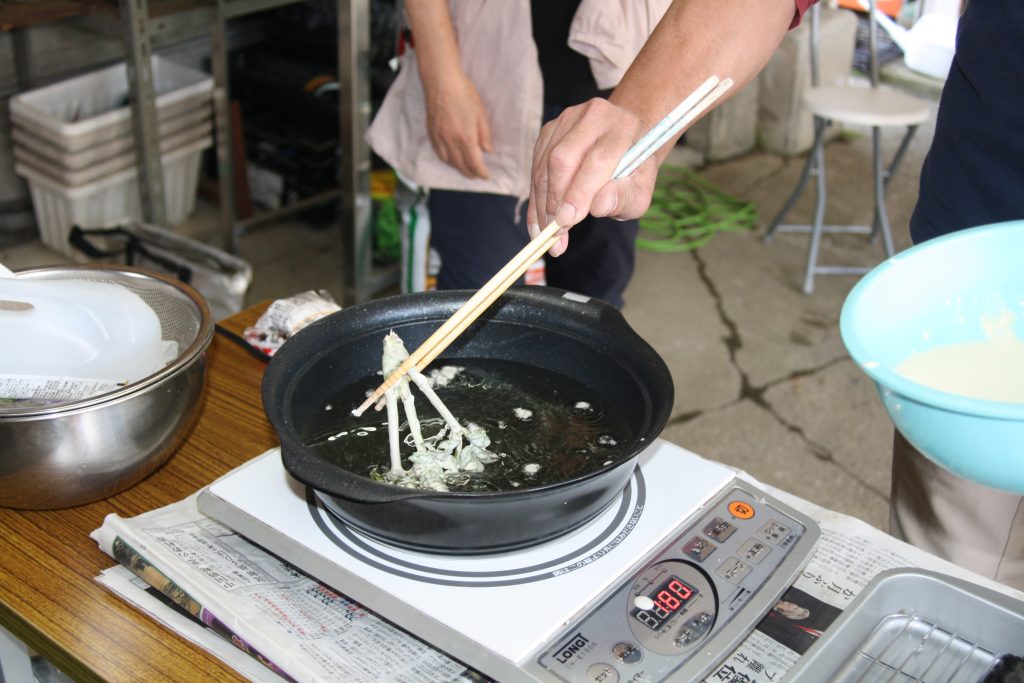
Please tell us about your job.
Next year will be the 50th anniversary of relations between Tokamachi and the Italian city of Como, so it will be a very important celebration, and there is a lot to prepare. We are trying to organize events both for when the delegation from Como will come here, and for when people from Tokamachi will go to visit Como.
Aside from this, I try to share my culture with the citizens of Tokamachi. I hold an Italian language class, and some people from Tokamachi attend it every week! Sometimes I organize other events related to Italian culture- recently we had an event with a couple of musicians. They taught us about Italian opera, and we got to hear some of their recitations. I do Italian cooking classes every month, and this event is quite popular. I am glad that the people of Tokamachi are interested in my culture. Next month I want to do an event on Italian cinema. I also enjoy joining Japanese events: I participated in the mikoshi festival and the Tokamachi Winter Festival, and I will be participating in the kimono matsuri. I’m trying to join as many Japanese experiences here as I can.
It seems that you have an interest in cooking. Is there any local cuisine or ingredients that you like?
I just recently tried sansai, such as butterbur shoots (fukinotou), and it was very nice with pasta! I’m not really used to cooking with Japanese ingredients, so it is still challenging for me.
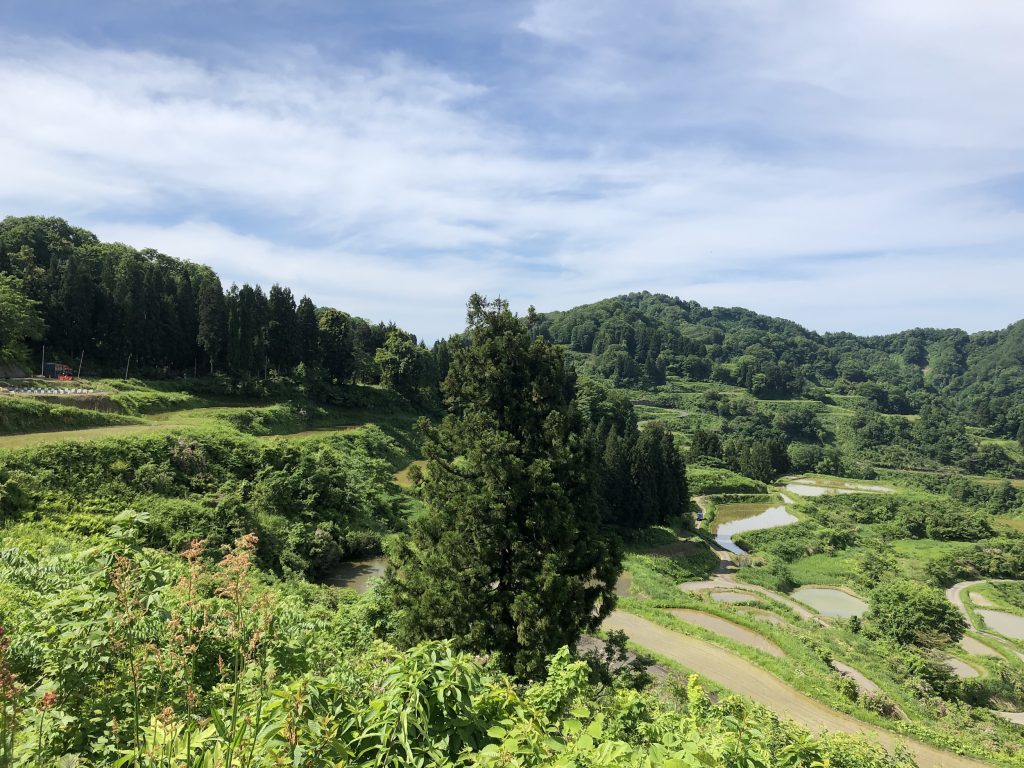
Tell us about some places you enjoy traveling to within YUKIGUNI
For me, just taking my car and driving around is fun! The scenery here is really beautiful. There are some beautiful and unique landscapes, like the Houshitouge Rice Terraces. I also love when it snowed! My hometown has little snow, so when it snowed for the first time here, the whole landscape changed overnight! I thought that I would never ski in my life before I came to YUKIGUNI, but I enjoyed skiing at Hotel New Greenpia in Tsunan this winter.
What are your plans for the future?
I would like to continue to have deep relations with Japan in some way, but I am still deciding whether to stay in Japan or move back to Italy someday.
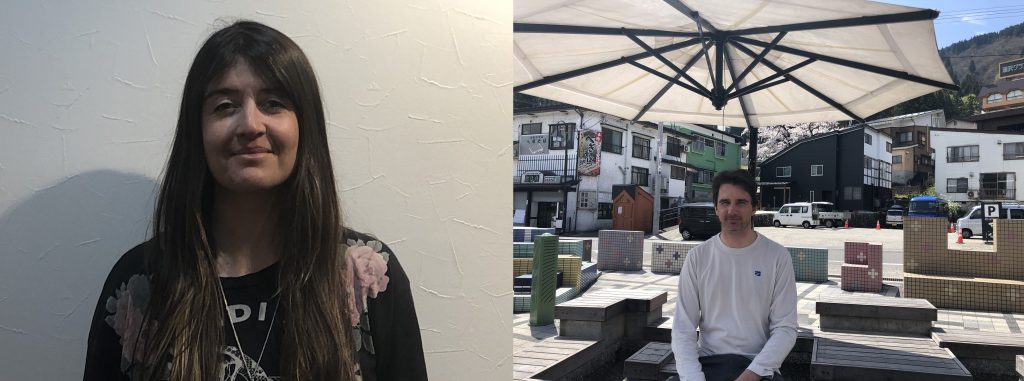
Ski & Snowboard Instructors Julia (Argentina) and Quentin (France)
How long have you lived here?
J: Only 4 months – I moved here this winter!
Q: This is my 6th year here. I started out in Yuzawa, then 4 years ago I moved to Muikamachi in Minamiuonuma City.
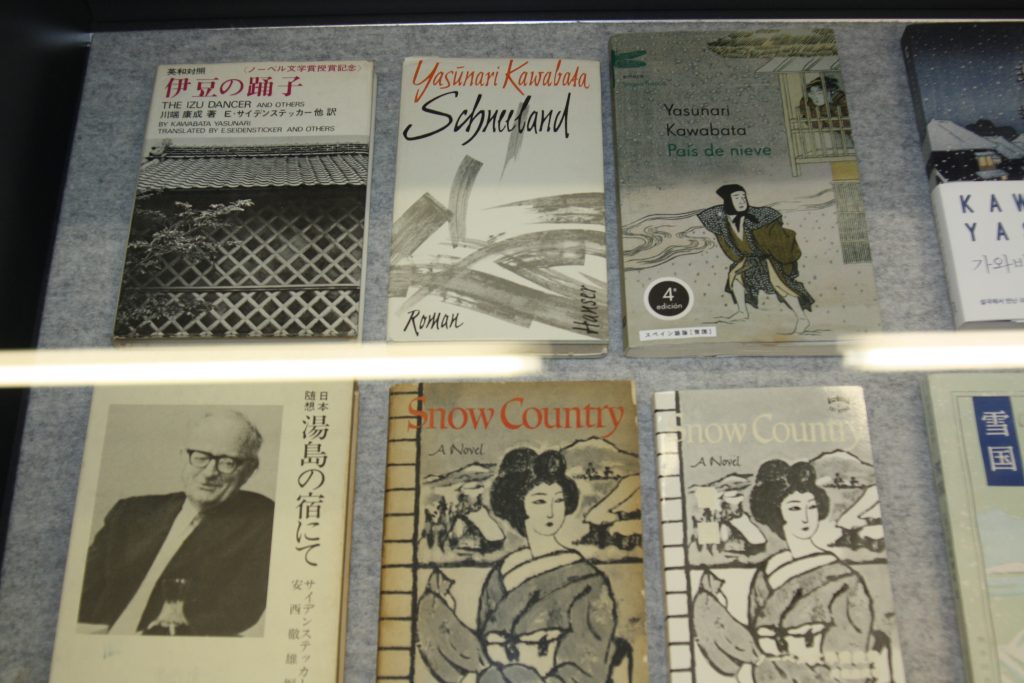
Why did you decide to move here?
J: I’d always dreamed of coming to Japan. (After I got my job here) I started searching for the place, just typing Yuzawa into google to see pictures, and “Snow Country” came up… it was a link to the book Snow Country! Pais de Nieve, which is the title in Spanish, is one of my favorite books!
Q: For the snow, of course!
How does Yuzawa compare to your hometown?
J: My hometown is a popular ski area in Argentina; there are about 200,000 people living there right now. Yuzawa is smaller, but better organized. And there is more snow here, for sure!
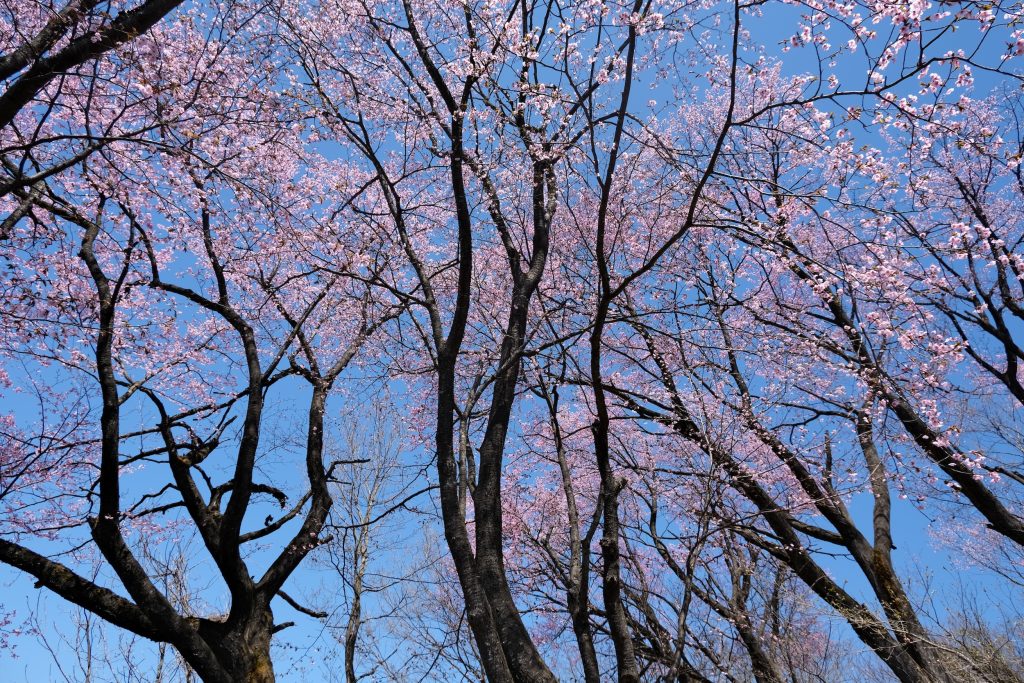
Can you recommend a place to see in Snow Country?
Q: Uonuma no Sato is very interesting…I don’t drink alcohol, but I like the snow! It is a very beautiful area. Mt. Sakado is also quite nice to hike.
Are there challenges to living here?
J: Learning the language is tough, but my coworkers told me that some years ago that there weren’t even signs in English. I think people here are learning to manage the situation.
Q: It’s a challenge, but also interesting how things don’t change here in terms of tourism- for example, how restaurants here often don’t translate menus- but it also means the place seems more Japanese. I think there has to be a middle ground.
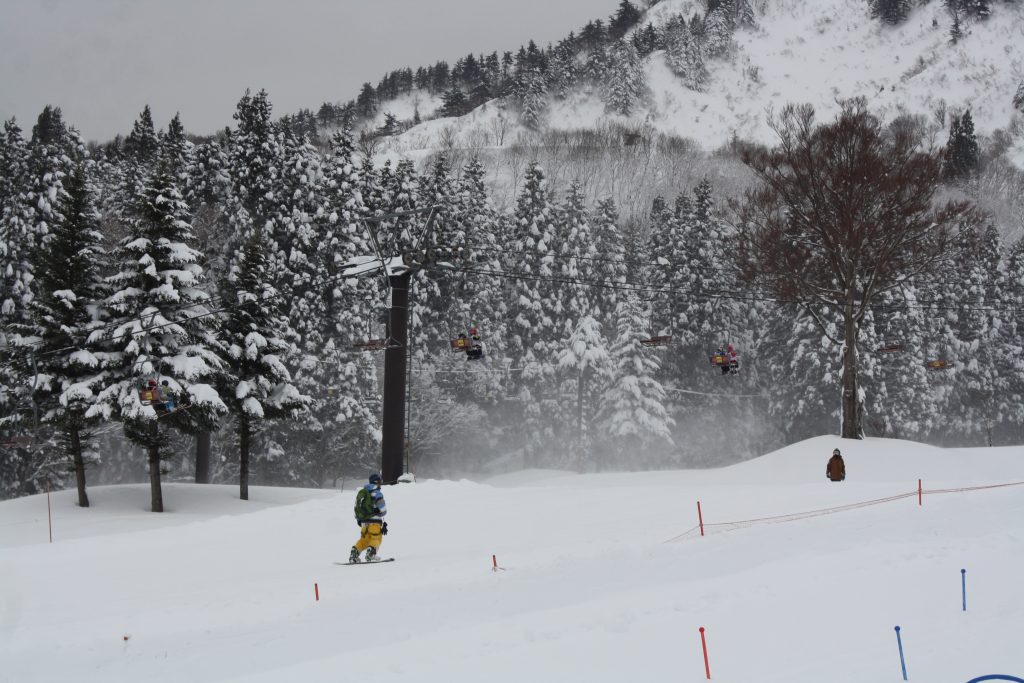
What are your plans for the future?
J: I am leaving Yuzawa soon, but think I will come back. Yuzawa has a really good vibe, and it is very attractive- it feels like “Deep Japan!”
Q: My plan is to start guided tours with e-bikes. I want to show tourists YUKIGUNI in the summer. See places like Uonuma no Sato and Daigenta Kobo… go through the rice fields, see the view. Every month is different!
To learn more about booking your own ski or snowboarding lesson in YUKIGUNI, click HERE!
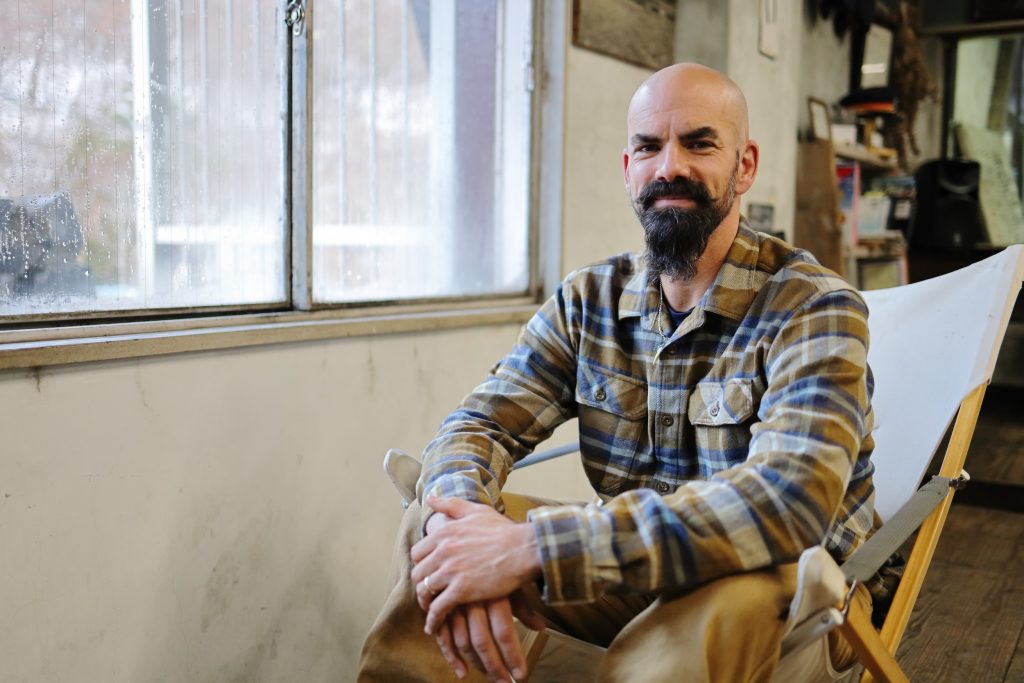
Minakami Relocation Concierge Cory McGowan (America)
Tell us your first impression of Minakami.
The first time I ever came to Minakami was on a camping trip with some friends; that must have been 16 or 17 years ago! At that time I was living in Tokyo, so I liked any place in the mountains that I could go and visit. There is a road that takes you from Tsukiyono up to Minakami, and the scenery of the Tanigawa mountain range was one of the first things to make a big impression on me…even years later it’s something I never get tired of. We moved here (to Tsukiyono area of Minakami) in March of 2018.
Tell us about your work here.
My concierge job is basically on a volunteer basis…the town started out with a couple of Japanese people doing it, then they reached out to me as a non-Japanese person to talk to other non-Japanese people that want to move to Minakami. It is much easier to move into a community in rural Japan when you get to meet others from that community and make contacts.
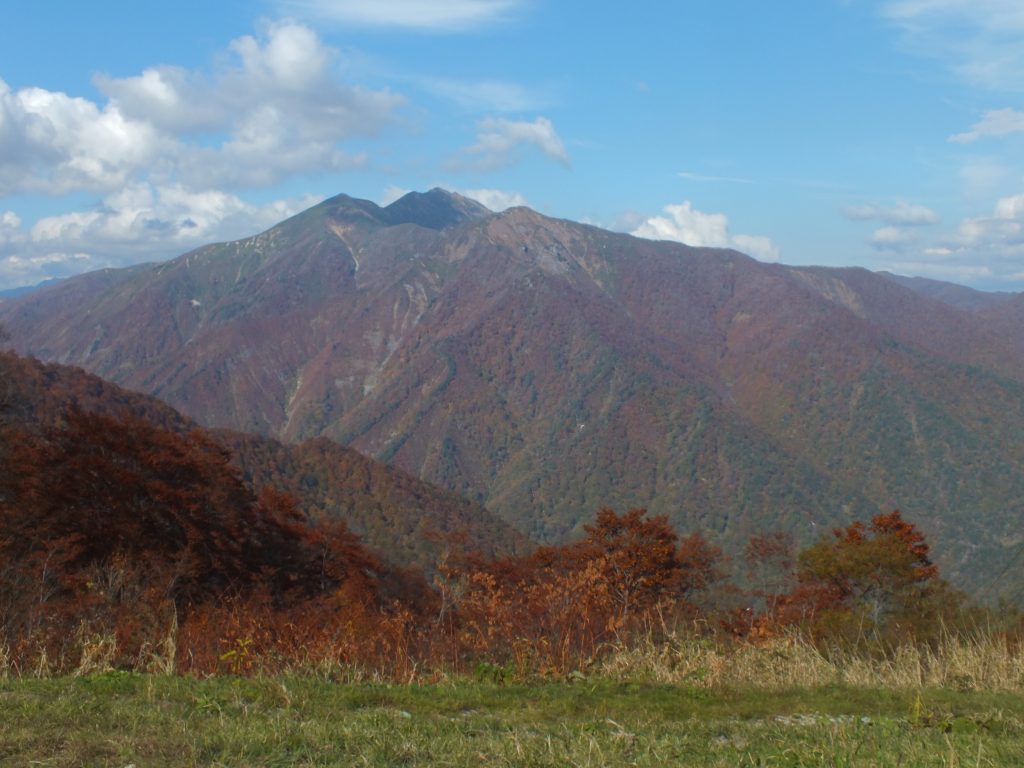
What are common concerns people have when moving here?
One is language: I had a couple who had only been in Japan for about a year and a half, so didn’t speak much Japanese, but were still gung-ho to live out here! Another is housing… wanting to rent before you buy, but not having many rental properties available. Another is just living out in Snow Country: what kind of car they would need, what winters are like here…the wilderness and outdoors in general.
What do the locals think of people moving here?
In my neighborhood I am connected to many of the locals…and they have never been anything but welcoming to me. Minakami, as far as I know, has had foreign people living here close to 40-50 years, so it’s not an uncommon thing here.
What is the sense of community in Minakami compared to bigger cities like Tokyo?
When I lived in Tokyo, I lived in a 9 or 10 story apartment building, and I didn’t know anyone who lived around me. Here, we know everyone that lives around us and communicate with them regularly. There is a warmth and a generosity and a connection that exists in this community that is very different than in a city.
Is the day-to-day life different compared to bigger cities?
I am (mainly) an executive coach, so I get to decide my schedule and what to do with my time. When I was working 9 to 5 in Tokyo…I would often feel myself getting stir crazy, wondering what there was to do in the city and how to get out! I am a runner and a cyclist, and I would do that there, but even still I felt energy that needed to go somewhere but couldn’t. Here, there are all these places to be outside and connected with nature, so I feel that I can balance myself out a lot more.
Are there many opportunities for Japanese and foreigners to mingle in town?
There are several cool businesses that’ve opened up in the past 3 or 4 years – three different coworking spaces that some foreigners use as well. Some cool cafes have opened up…places like that are a mix already of Japanese and non-Japanese culture, and it spreads in the community by word of mouth. This year the famous “Grinduro” bike race is happening in Minakami. Outdoor sporting events tend to bring people together here as well.
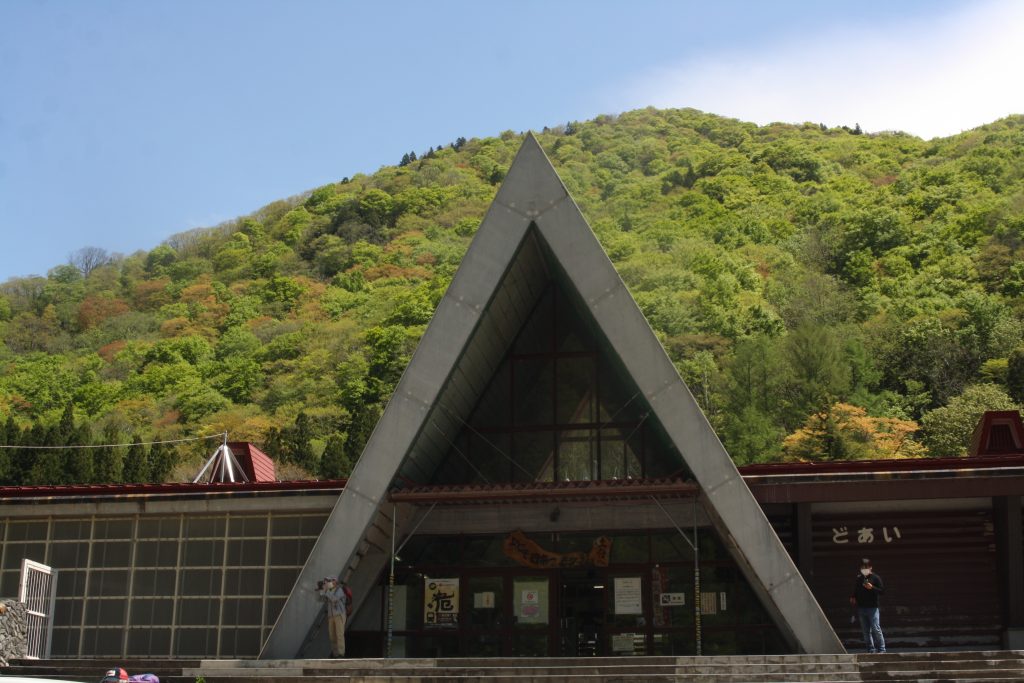
Can you recommend a place to see in Snow Country?
There is a local train station called Doai, and it is quite close to the ropeway that goes up Mt. Tanigawa. I like to bring clients there for a “visioning retreat” – to help them envision what they want to create in our work together. There is a beautiful waterfall there, and a couple of rivers also, and in the winter it is a beautiful snowshoeing area.
What are your plans for the future?
I’ve recently been bringing groups of people to Minakami from within Japan and from overseas as well. A fellow coach and I are starting a project this year called “Hare to Kei Minakami Stories.” It will be a gathering where we bring together a local chef, and a local artist, decide a theme, and the food and the art will be based on this theme. Local people can come together, eat the food, check out the art, and tell stories. If we can come together and tell these stories, I think we can develop a stronger sense of community and decide what we want the community to become (in the future).
For information on available housing in Minakami in English and other information, check out Cory’s website HERE.

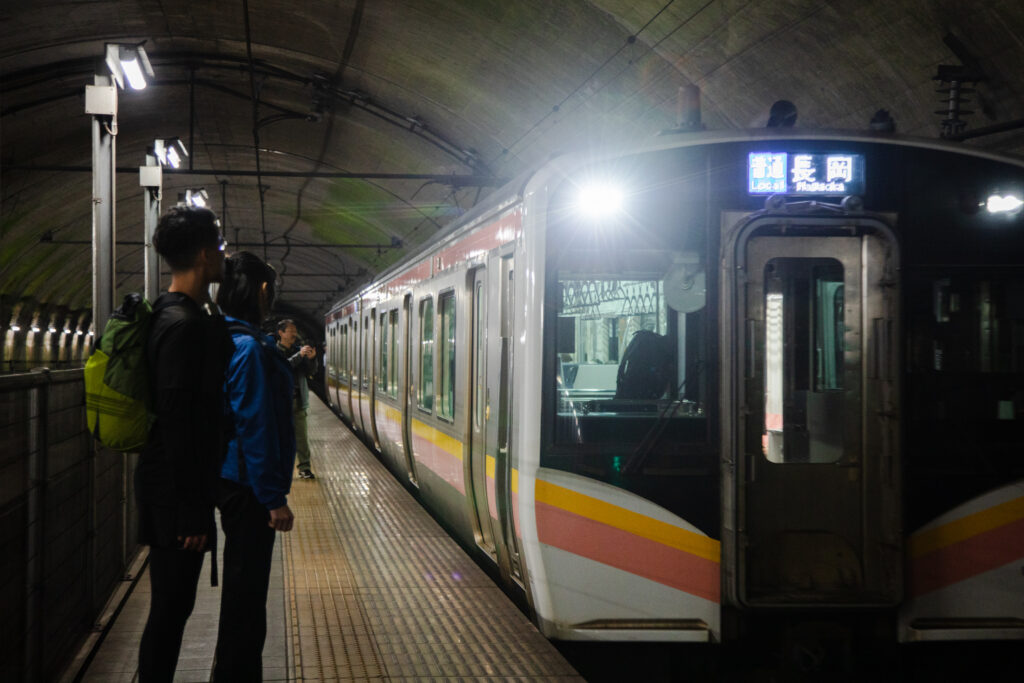
-1024x626-2.jpg)
